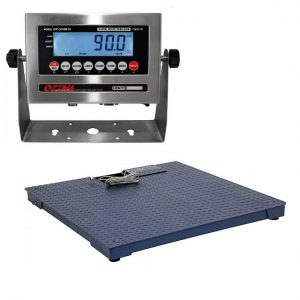In the dynamic landscape of urban design, the importance of sustainable solutions cannot be overstated. As cities grow, so does the need for innovative street furniture that not only serves functional purposes but also contributes to a healthier and more eco-friendly environment.
This article explores the myriad benefits of designing and manufacturing items such as litter receptacles, recycling stations, planters, bike racks, tables, and seats. Additionally, we’ll explore how the integration of weighing scales in the manufacturing and transportation processes enhances efficiency and sustainability.
Litter Receptacles
Litter receptacles, often overlooked in urban planning, play a crucial role in maintaining cleanliness and fostering a sense of civic responsibility. Lots of companies have revolutionized the design and manufacturing of litter receptacles, emphasizing both functionality and aesthetics.
Benefits:
- Cleaner Urban Spaces: The primary function of litter receptacles is to prevent littering, contributing to cleaner and more attractive urban environments.
- Waste Management Optimization: Modern receptacles often incorporate smart technologies such as sensors and compactors, optimizing waste management processes and reducing the frequency of collections.
- Circular Economy: Using recycled materials in manufacturing promotes a circular economy, reducing the environmental impact associated with traditional waste disposal.
Recycling Stations
Recycling has never been more popular. Areas all over are at the forefront of developing comprehensive recycling stations that encourage responsible waste disposal practices. The benefits of such stations extend beyond the obvious environmental advantages.
Benefits:
- Increased Recycling Rates: Well-designed recycling stations with clear signage and user-friendly interfaces make it easy for individuals to separate their waste, leading to higher recycling rates.
- Educational Tools: Recycling stations often include educational elements, raising awareness about the importance of recycling and its positive impact on the environment.
- Modular Designs: Modular designs allow for customization based on specific waste management needs, providing flexibility for different urban contexts.
Planters
Plants and integrating greenery into urban landscapes through innovative planters not only add aesthetic value but also contribute to environmental sustainability.
Benefits:
- Aesthetic Enhancement: Planters contribute to the beautification of urban spaces, offering a visual respite from concrete jungles.
- Environmental Impact: The presence of greenery in urban environments helps improve air quality and biodiversity, creating a healthier and more livable city.
- Smart Irrigation: Incorporating smart irrigation systems ensures efficient water use, promoting plant health while conserving resources.
Bike Racks
As cities embrace sustainable transportation options, the need for secure and accessible bike parking becomes paramount. Companies throughout the United States are leading the charge in designing bike racks that cater to the growing number of urban cyclists.
Benefits:
- Encouraging Sustainable Transportation: Bike racks promote cycling as a sustainable mode of transportation, reducing carbon emissions and traffic congestion.
- Security: Secure and durable designs protect bicycles from theft and damage, encouraging more individuals to choose cycling as a viable commuting option.
- Space Efficiency: Well-designed bike racks maximize space utilization, accommodating a higher number of bikes in limited urban areas.
Tables & Seats
Communities allover are beginning to emphasize creating inviting public spaces with outdoor tables and seating arrangements. The benefits of well-designed and manufactured street furniture extend beyond providing a place to sit.
Benefits:
- Community Engagement: Comfortable seating arrangements foster community engagement, encouraging people to gather and socialize in public spaces.
- Durability: Durable materials ensure longevity, reducing the need for frequent replacements and minimizing waste.
- Customizable Designs: Customizable designs allow municipalities to tailor public spaces to their unique needs, creating vibrant and functional gathering spots.

The Role of Scales in Manufacturing and Transportation
In the production and transportation of these street furniture items, scales play a pivotal role in ensuring efficiency, accuracy, and sustainability.
-
Manufacturing:
- Precision in Material Usage: Scales are instrumental in measuring and weighing raw materials, ensuring accurate proportions and minimizing waste in the manufacturing process.
- Quality Control: Scales play a crucial role in quality control, ensuring that the final products meet specified weight and material standards. This guarantees the durability and longevity of the street furniture.
- Inventory Control: Counting scales play a critical role in making sure the correct number of bolts or screws are accounted for.
- Checkweighing: Furniture often arrives with some assembly necessary. Companies use a check weighing scale to make sure each bag has the correct number of bolts, washers, nuts, etc…
-
Transportation:
- Freight Optimization: Platform scales are used to determine the weight of shipments, optimizing freight loads to ensure that trucks are carrying the maximum weight allowed within legal limits. This reduces transportation costs and minimizes the environmental impact associated with excessive shipping.
- Carbon Footprint Reduction: Accurate weighing of shipments enables companies to plan transportation routes more efficiently, reducing the carbon footprint associated with unnecessary fuel consumption.
The benefits of designing and manufacturing sustainable street furniture extend far beyond their immediate functions. From fostering cleaner urban spaces to promoting community engagement and environmental sustainability, these items are integral to shaping the future of our cities.
From our perspective, various types of scales are utilized in the manufacturing and transportation processes which further exemplifies the commitment to precision, efficiency, and the overall goal of building a greener and more sustainable world. If you need assistance on choosing which scales are right for your business, please contact customer service today.